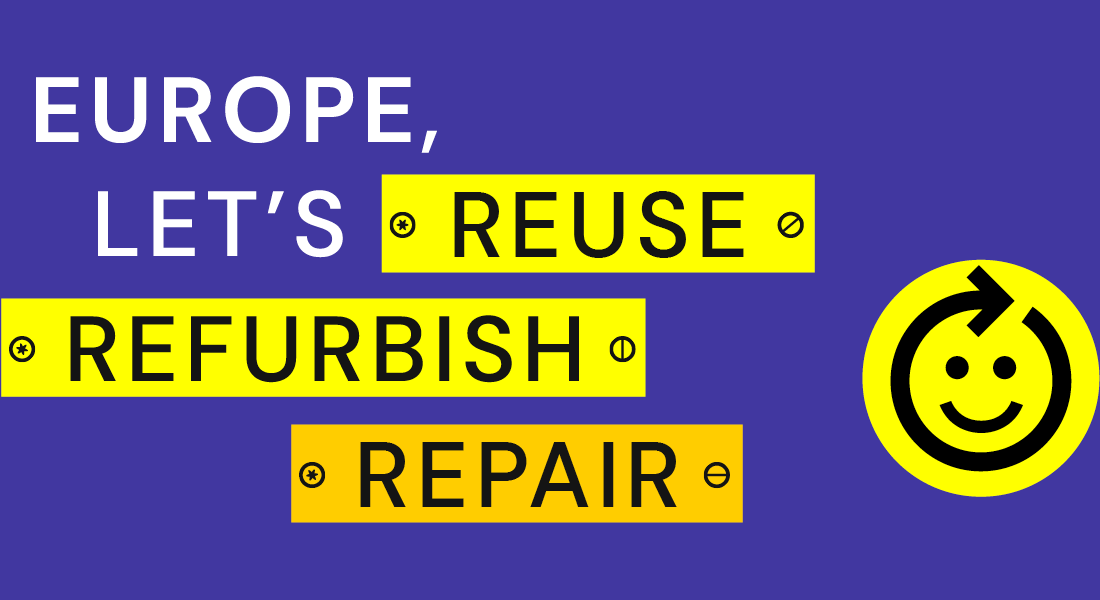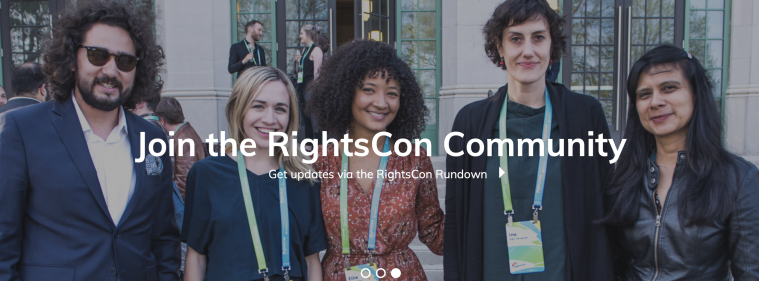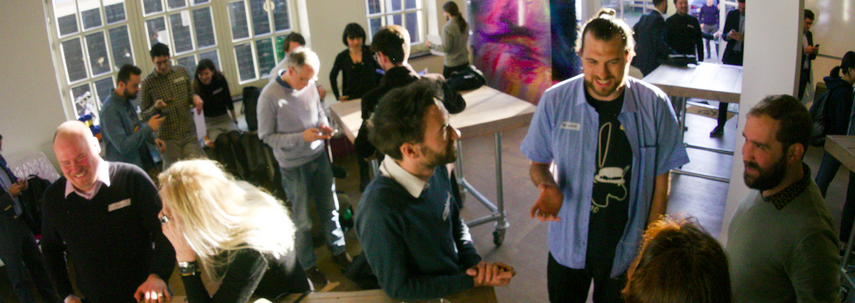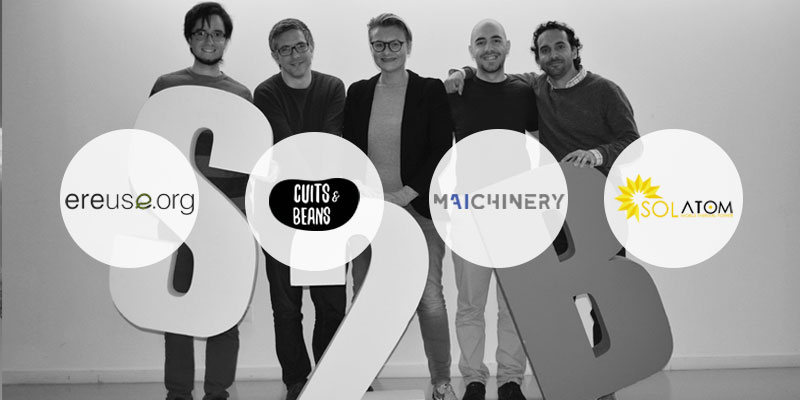In our work supported by the NGI-Search project, we have achieved several advances in searching, discovering and accessing information about our digital devices. We have a digital product passport (DPP) that shows a history of all hardware configurations a device (a chassis) has or had over a lifespan, with the same chassis and serial but with perhaps different components due to repair, reconfiguration, upgrades, remanufacturing. We record key events of each product item’s lifespan and provide a public record for accountability.
We keep a so-called digital twin for the circular management of ICT devices. The digital information is kept in two sources, one database with details about each action and the documents that detail them, and a ledger or accounting book that builds on append-only storage (organized as a blockchain) so past events cannot be changed.
The DPP is a concept developed by the European Commission for the Sustainable Product Initiative and ecodesign (ESPR). Below there is a video demo of it.
A DPP search engine is an required component of the ESPR. The links in the figure and video below point to a separate DPP registry prototype where product models are registered as a requirement to enter the EU market.
The coins surrounded by a recycling logo represents, implemented as an ERC20 smart contract, a token deposit left by the manufacturer as part of an extended producer responsibility (EPR) scheme, under the principle of “the poluter pays”. Manufacturers leave a deposit according to each product items entering a national market. This deposit waits for years until an accredited professional recycler records a proof of recycling, and auditor validates the processing and proofs, and then automatically and inexorably the deposit is transferred to that recycler, completing the process. Of course, all of these lifespan events are registered in the ledger, providing a transparency log of the circular economy of digital devices.
The software system will be released in March 2024.
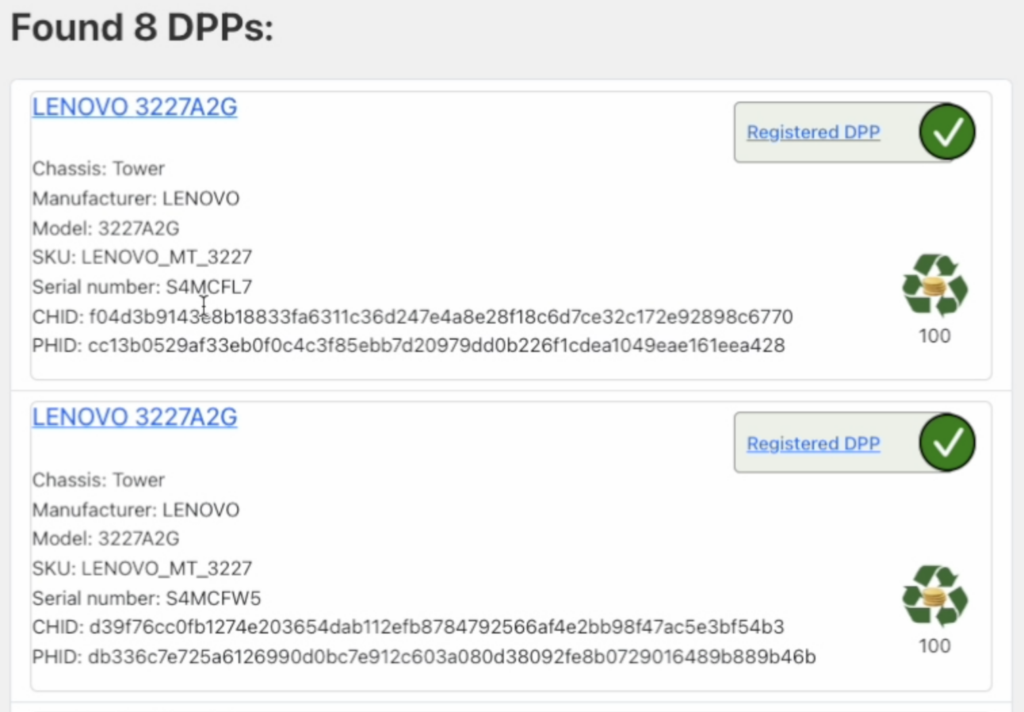
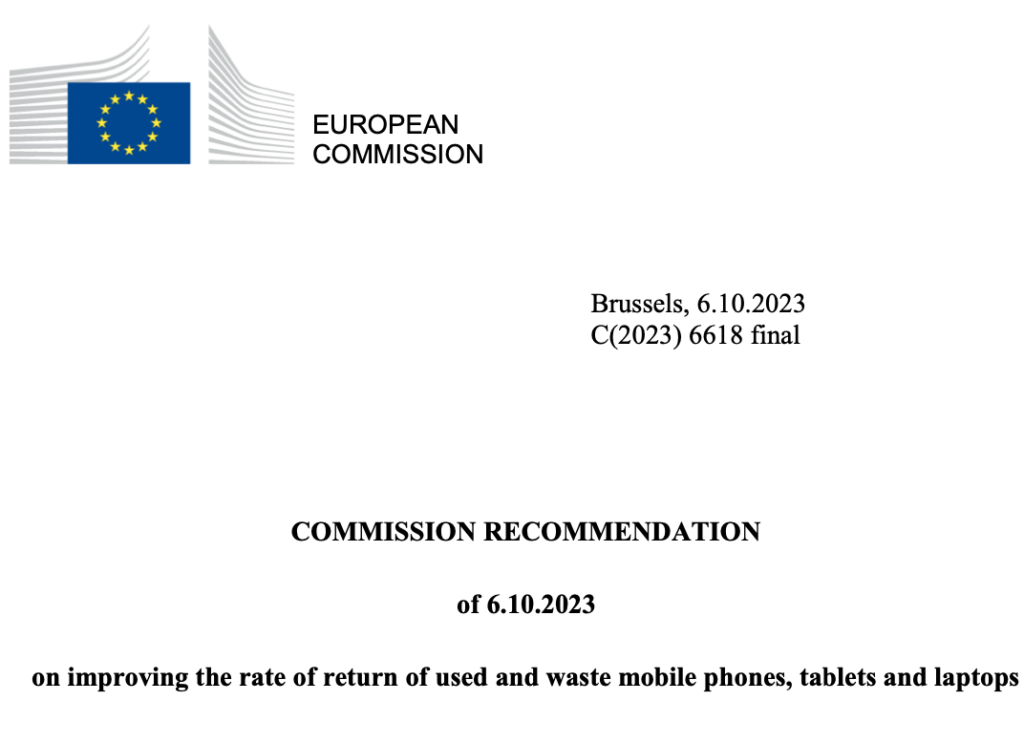
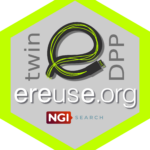
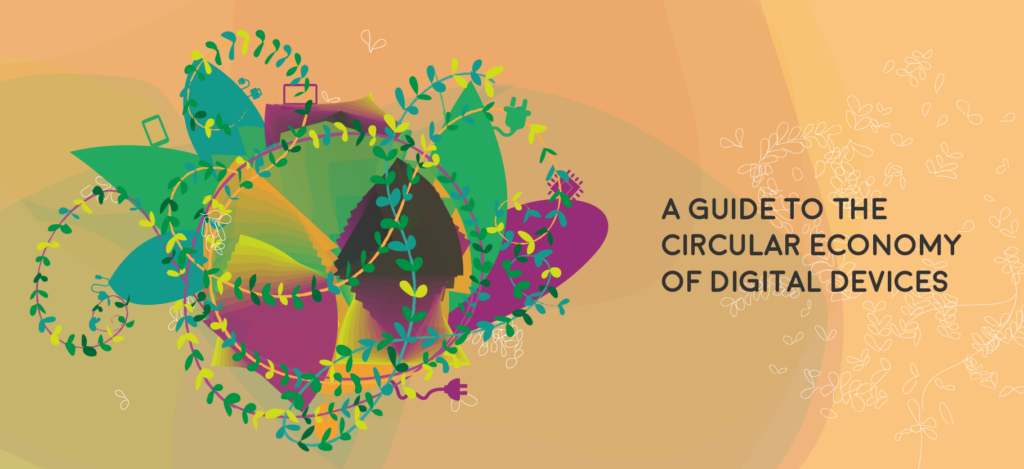
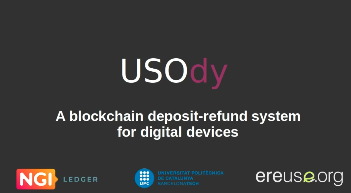
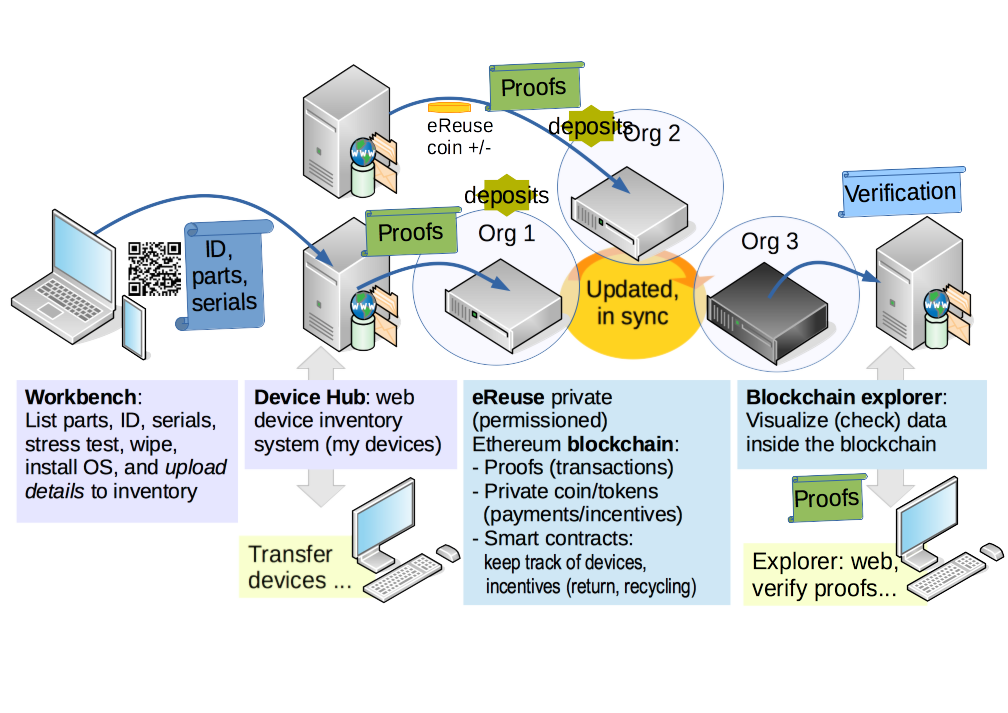
 In eReuse we definitely share the perspective of the
In eReuse we definitely share the perspective of the 